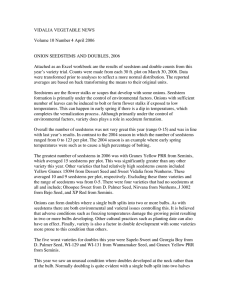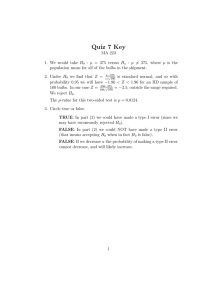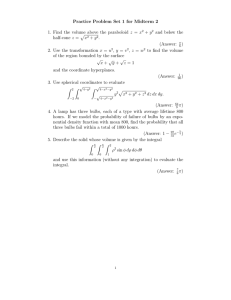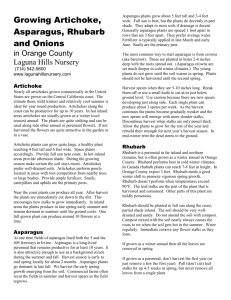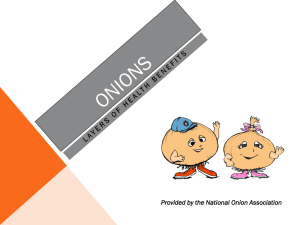AGRICULTURAL EXPERI1NT STATION Circular of Information No, 233 ONION YELLOW DWARF
advertisement
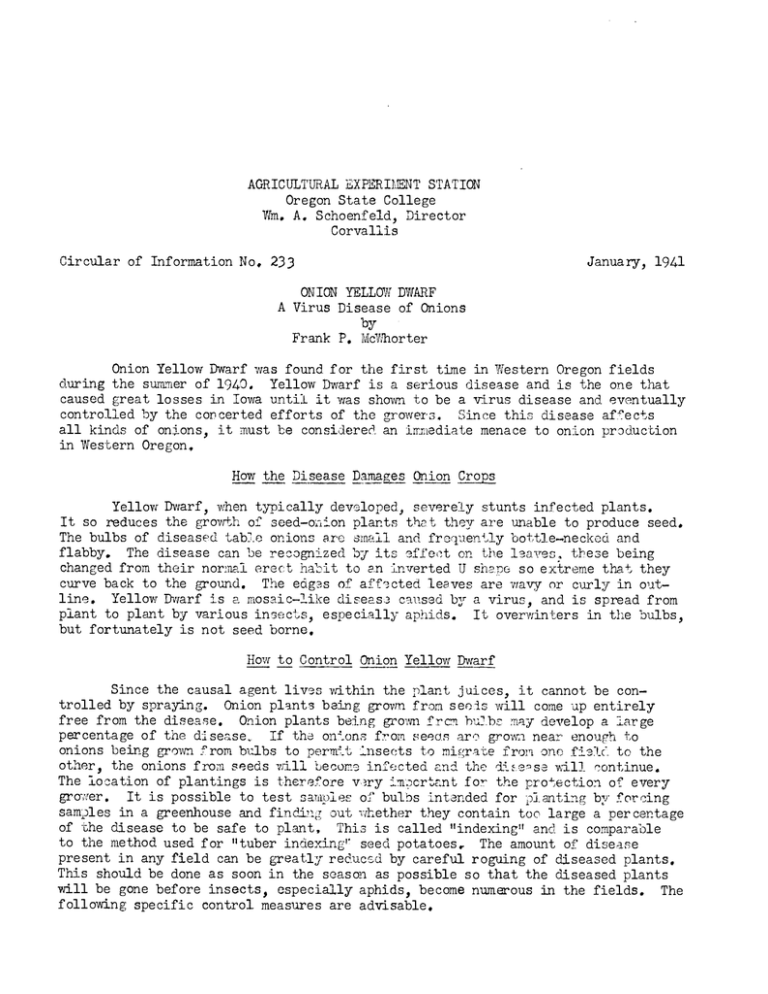
AGRICULTURAL EXPERI1NT STATION Oregon State College Win. A. Schoenfeld, Director Corvallis Circular of Information No, 233 January, l9Ll ONION YELLOW DWARF A Virus Disease of Onions by Frank P. McVthorter Onion Yellow Dwarf was found for the first time in Western Oregon fields during the summer of l94O. Yellow Dwarf is a serious disease and is the one that caused great losses in Iowa until it was shown to be a Lrus disease and eventually controlled by the concerted efforts of the growers. Since this disease affects all kinds of oni.ons, it must be considered an immediate menace to onion production in Western Oregon, the Disease P_g! ?flZ21 cr2J2 Yellow Dwarf, when typically developed, severely stunts infected plants. It so reduces the growih of seed-onion plants that they are unable to produce seed. The bulbs of diseased table onions are small and frequently bottle-necked and flabby. The disease can be recognized by its e1tect on the leaves. these being changed from their normal erect habit to an inverted U shape so extreme that they curve back to the ground. The edges of affected leaves are wavy or curly in outline. Yellow Dwarf is a mosaic-like disease caused by a virus, and is spread from plant to plant by various insects, especially aphids. It overwinters in the bulbs, but fortunately is not seed borne, How to Control Onion Yellow Dwarf Since the causal agent lives within the plant juices, it cannot be controlled by spra,ing. Onion plants being grown fran seoin will come up entirely free from the disease. Onion plants being grown frc bulbs may develop a large percentage of the disease. if the onions from seects are grown near enough to onions being grown from bulbs to permit insects to migrate from one fielc to the other, the onions from seeds will become infected and the die°se will continue. The location of plantings is therefore vry imuortant for the protection of every grower. It is possible to test samples of bulbs intended for planting by forcing samples in a greenhouse and finding out whether they contain too large a percentage of the disease to be safe to plant, This is called "indexing" and is comparable to the method used for "tuber indexing' seed potatoes.. The amount of disease present in any field can be greatly reduced by careful roguing of diseased plants. This should be done as soon in the season as possible so that the diseased plants will be gone before insects, especially aphids, become numerous in the fields. The following specific control measures are advisable. A. B. Streaking and Curling Caused by Onion Yellow Dwarf Disease Seed Onion Dwarfed by Yellow Dwarf Virus. 3 Growers must cooperate to arrange their plantings so that plants being grown from seeds will not be exçosed to plants being grown from bulbs. Onions being grown from seed must be isolated. Infection may come from (a) onions being grown fran bulbs, (b) volunteers or rogues in old onion fields, and (c) home garden plantings, no matter how small. 1, Lotion of Plantings. Roguing. Rogue out all disease plants as soon as observed. This must It is better to carry the rogued plants be done before insects become abundant. away from the field. 2. Sampling Planting Stock. Adequate greenhouse facilities should be 3. arranged for to permit testing and indexing samples of onions intended for seed growing to determine the amount of disease. A tolerance should be agreed on by the growers. A laboratory procedure has been devised at the Experiment Station whereby rapid diagnosis of doubtful cases is facilitated. Special Yellow Danvers Problem. Healthy Yellow Danvers plants in 4. tended for seed stock should be selected in the field and staked and the bulbs from these should be separately stored and later planted in an isolated location. The practice of selecting Yellow Danvers onions from large plots of cured bulbs for seed production is made dangerous by the presence of this disease. A method of control, which every grower can begin practicing at once, is thorough roguing,
